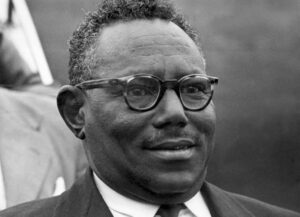Sudan has experienced a diverse political history since its independence in 1956, marked by a series of prime ministers who have played significant roles in shaping the nation.
Below is a detailed list of the prime ministers of Sudan, along with their years of tenure.
READ ALSO: Presidents That Have Ruled DR Congo Till Date
| Name | Term Start | Term End |
|---|---|---|
| Abd al-Rahman al-Mahdi | 22 October 1952 | November 1953 |
| Ismail al-Azhari | 6 January 1954 | 1 January 1956 |
| Abdallah Khalil | 5 July 1956 | 17 November 1958 |
| Ibrahim Abboud | 18 November 1958 | 30 October 1964 |
| Sirr Al-Khatim Al-Khalifa | 30 October 1964 | 2 June 1965 |
| Muhammad Ahmad Mahgoub | 10 June 1965 | 25 July 1966 |
| Sadiq al-Mahdi | 27 July 1966 | 18 May 1967 |
| Muhammad Ahmad Mahgoub | 18 May 1967 | 25 May 1969 |
| Babiker Awadalla | 25 May 1969 | 27 October 1969 |
| Gaafar Nimeiry | 28 October 1969 | 11 August 1976 |
| Mohamed Tahir Ayala | 11 August 1976 | 16 May 1977 |
| Al-Jazuli Dafa'alla | 16 May 1977 | 6 April 1985 |
| Sadiq al-Mahdi | 6 April 1985 | 30 June 1989 |
| Bakri Hassan Saleh | 2017 | 2019 |
| Abdalla Hamdok | 21 August 2019 | 2 January 2022 |
| Osman Hussein | 19 January 2022 | Present |
First Prime Minister: Ismail al-Azhari

Ismail al-Azhari was the first prime minister of Sudan following its independence from British-Egyptian rule on January 1, 1956. He led the Democratic Unionist Party and played a crucial role in establishing the new government.
Notable Achievements
- Independence Leadership: Al-Azhari was instrumental in negotiating Sudan’s independence, advocating for self-governance and national unity.
- Constitutional Framework: He initiated the development of a constitutional framework that laid the groundwork for Sudan’s political structure.
Downsides
- Political Instability: His tenure was marked by political instability and factionalism, which ultimately led to his government being defeated in a vote of censure in the Constituent Assembly.
- Limited Economic Progress: Al-Azhari’s government struggled to address economic challenges, leading to dissatisfaction among the populace.
READ ALSO: Presidents That Have Ruled Kenya Till Date
Current Prime Minister: Osman Hussein

Osman Hussein is the current acting Prime Minister of Sudan, having taken office on January 19, 2022, following the resignation of Abdalla Hamdok.
As an acting prime minister, Hussein faces the challenge of navigating Sudan’s complex political landscape and restoring stability in the country.
Notable Achievements
- Transitional Governance: His appointment comes during a critical transitional period aimed at restoring civilian rule following a military coup. He is tasked with navigating complex political dynamics to stabilize the government.
- Focus on Reforms: He has emphasized the importance of economic and political reforms to address the country’s pressing issues, including inflation and governance challenges.
READ ALSO: Presidents That Have Ruled Tunisia
Downsides
- Challenges of Legitimacy: As an acting prime minister, his government faces challenges regarding legitimacy and support from various political factions and the military.
- Ongoing Instability: The political climate remains volatile, with ongoing protests and unrest, complicating efforts to implement reforms and establish a stable government.
Conclusion
Sudan’s political landscape has been shaped by a series of prime ministers, each contributing to the country’s complex history.
From Ismail al-Azhari’s foundational leadership to Osman Hussein’s current challenges, these leaders have navigated a myriad of political, economic, and social issues. The ongoing struggle for stability and democracy in Sudan continues to be influenced by the legacies of their tenures.
